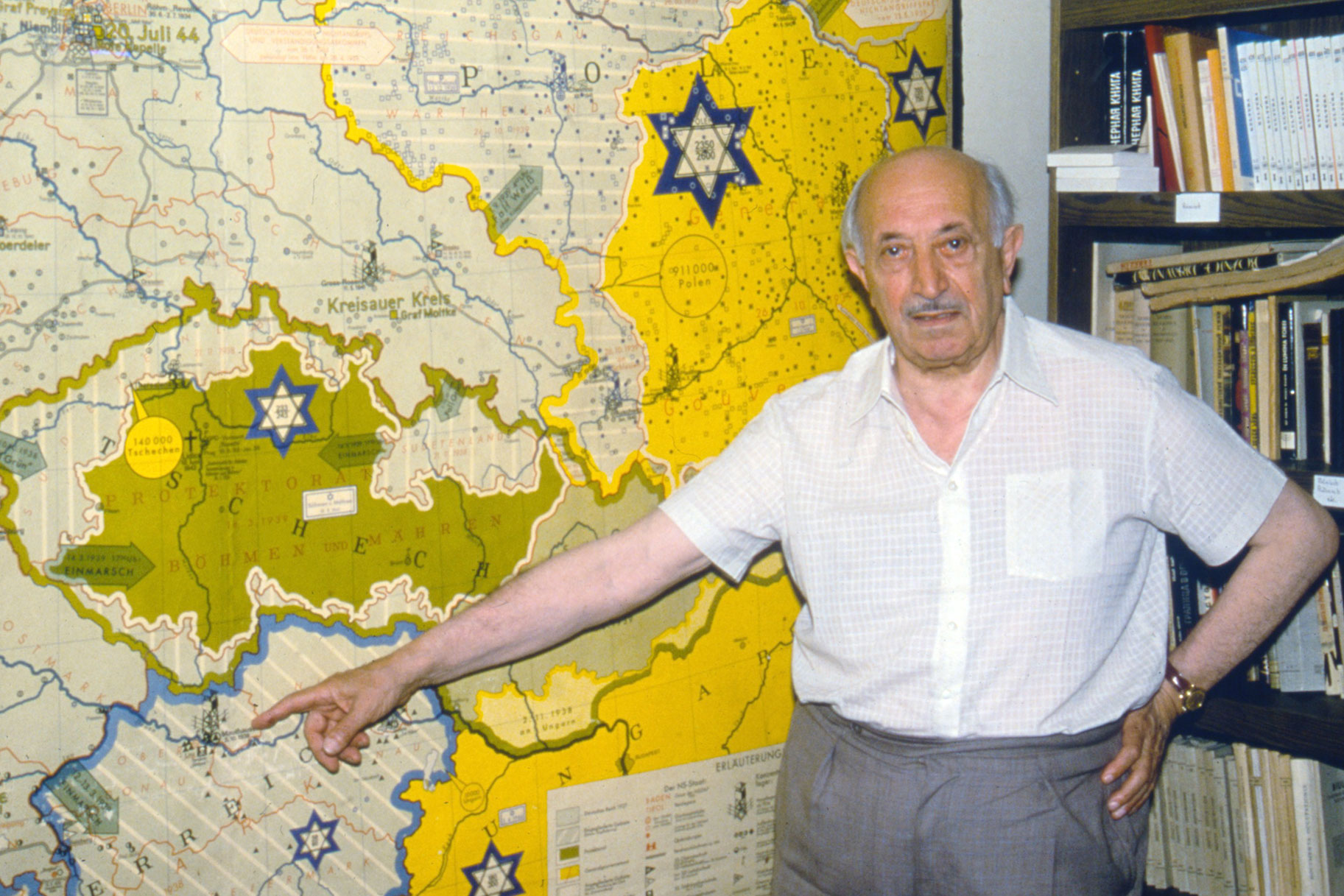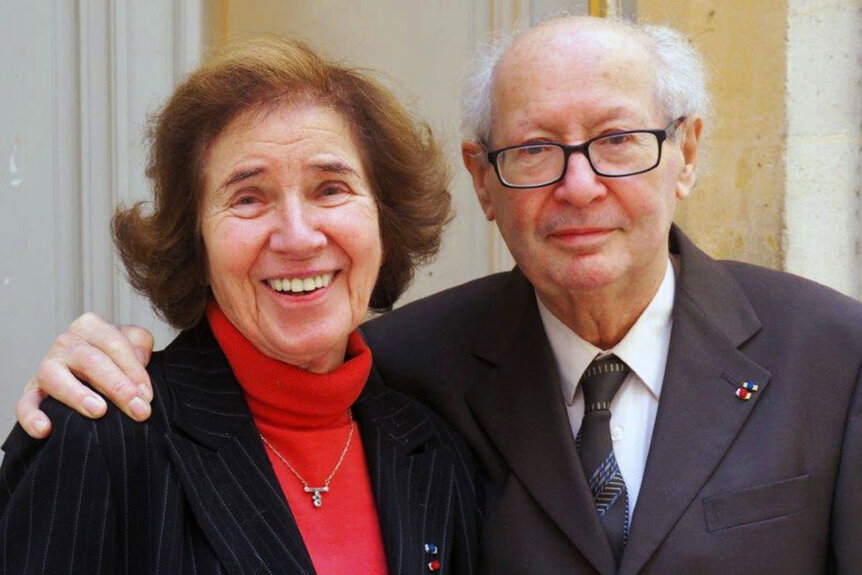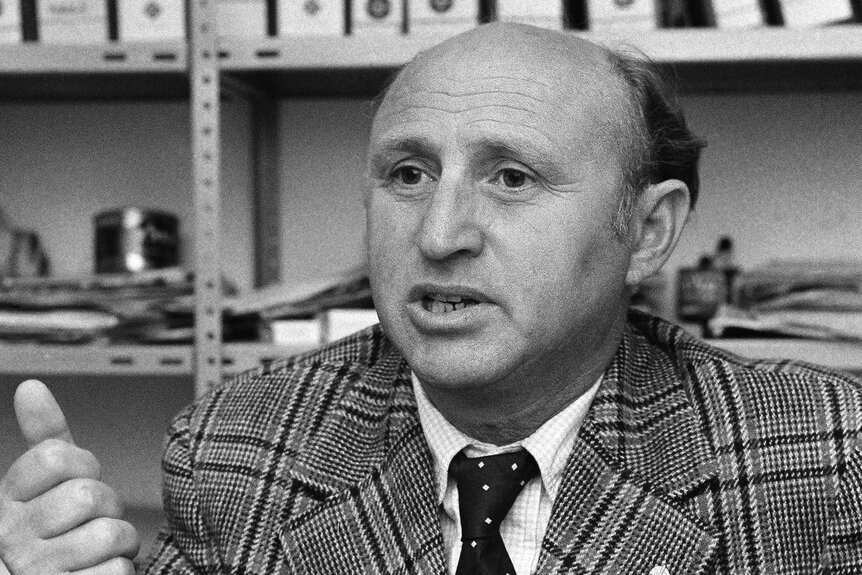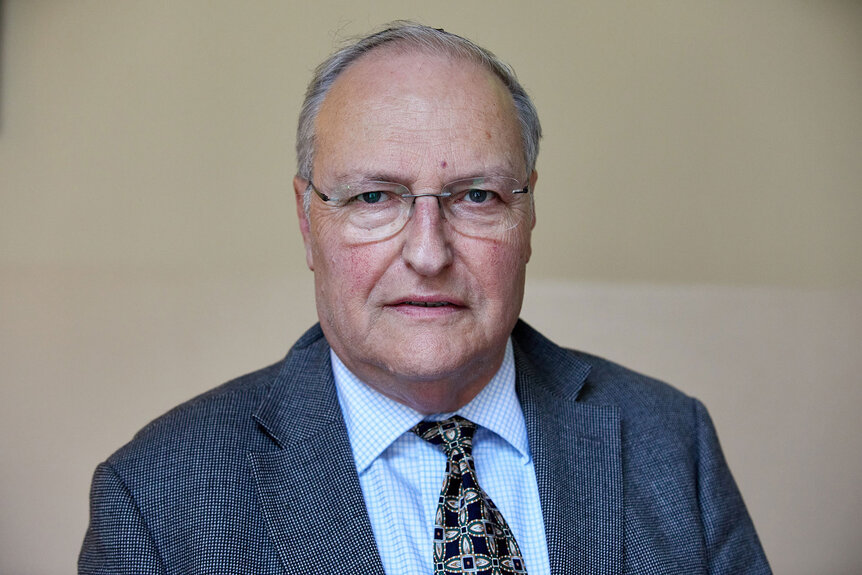Create a free profile to get unlimited access to exclusive videos, breaking news, sweepstakes, and more!
Were There Any Real-Life Nazi Hunters Like In The Fictional Series 'Hunters?'
“When history looks back, I want people to know the Nazis weren’t able to kill millions of people and get away with it," the late Nazi hunter Simon Wiesenthal, who dedicated his life to bringing war criminals to justice, once said.

The characters in Amazon Prime’s new drama “Hunters” seek revenge on former Nazi leaders who horrifically extinguished the lives of millions of Jews, but is the series rooted in fact?
“We survived the war, we survived the greatest mass eradication in modern history and we arrived home to find that the people who did this to us, they are our neighbors. So tell me, what should we do? Shake hands? Turn a blind eye? Forget? No. The greatest single gift of the Jewish people is our capacity, our capacity to remember,” the fictional Meyer Offerman — portrayed by Al Pacino — tells lead character Jonah Heidelbaum in the series’ first episode premiering Friday.
Heidelbaum, a young Jewish man grieving the recent death of his grandmother, agrees to help a group of vigilantes hunt down the Nazi leaders hiding in plain sight under new identities when the series begins in 1977.
Throughout history there have been a number of people who have devoted their lives to bringing war criminals to justice—although these “hunters” typically chose to operate through legal channels rather than taking matters into their own hands. The stories behind these real-life Nazi hunters are just as enthralling as the fictional tales depicted in the new Amazon series.
The list of real-life Nazi hunters includes a former architect who set out on a quest to hunt down Nazi war criminals after surviving the Nazi death camps—inspiring countless books and a HBO movie detailing his grim sleuthing endeavors.
Or the dynamic couple who took on spy-like missions—later forming their own family-run Nazi hunter business—to track down former Nazis who were living under new names in new countries in the years after the war.
As many former Nazi leaders are now in their nineties or already died, the hunt for these war criminals has begun to slow down, but in the 70-plus years since World War II ended, many Nazi leaders were brought to justice through their efforts.
Here are some of the notable Nazi hunters in history:
Simon Wiesenthal
Simon Wiesenthal had been an architect in what is present-day Ukraine before World War II broke out, but after the war began his life took a horrific turn. Wiesenthal was sent to his first concentration camp in 1941 in Ukraine and later escaped from the Ostbahn camp in 1943, just before the Germans began to kill the inmates, according to the Simon Wiesenthal Center’s website. He was recaptured in June 1944, and sent to Janowska where he narrowly avoided death one more time—when the German eastern front collapsed and the guards decided to bring the remaining prisoners to the Mauthausen camp in Austria. He was freed there by the U.S. Army in May of 1945, weighing less than 100 pounds.
After the war ended, Wiesenthal dedicated his life to tracking down Nazi criminals after realizing “there is no freedom without justice,” according to The Associated Press. Wiesenthal began his work gathering and preparing evidence on the Nazis for the War Crimes Section of the United States Army, according to his website. He’d go on to head the Jewish Central Committee of the United States Zone of Austria and later helped to open the Jewish Historical Documentation Center. The center worked to gather evidence for future trials on war criminals.
He is credited with tracking down Austrian policeman Karl Silberbauer in 1963. Silberbauer, acting during World War II as a Gestapo officer, was responsible for arresting Anne Frank — who later died in a concentration camp after leaving behind a now-famous diary documenting her time in hiding. Wiesenthal also helped ferret out other Nazi leaders in hiding, including Franz Murer, known as “The Butcher of Vilnius,” and Erich Rajakowitsch, according to his website.
To track down Franz Stangl, who had commanded two concentration camps in Poland, Wiesenthal did undercover work for three years before tracking the former SS officer down in Brazil. Stangl was later sentenced to life in prison for his crimes.
It’s believed Wiesenthal also played a role in hunting down notorious SS leader Adolf Eichmann, who had organized the extermination of the Jews. Wiesenthal received information that Eichmann had been hiding out in Argentina and passed the information on to Israel, according to his center’s website.
Israeli agents captured Eichmann, who had been living under the name “Ricardo Klement,” as he returned home from work in May of 1960 after a covert undercover operation, according to the Independent.
The agents put Eichmann on a plane to Israel, where he would be put on trial and ultimately sentenced to death during gripping televised proceedings.
While some have criticized Wiesenthal for exaggerating his role in bringing the Eichmann to justice, he told the Associated Press in 1972 it had been “a teamwork of many who did not know each other,” and said he didn't know for sure whether the reports he had sent to Israel had been used in the capture.
He established The Simon Wiesenthal Center, a Jewish human rights organization, in 1977 to continue his work of pursuing Nazi war criminals and fighting anti-Semitism. His efforts inspired the multiple books, including “The Murderers Among Us” and a HBO movie of the same name starring Ben Kingsley.
“When history looks back, I want people to know the Nazis weren’t able to kill millions of people and get away with it,” he once said, according to the center’s website.
Wiesenthal died in 2005 at the age of 96.
Serge and Beate Klarsfeld
For Serge and Beate Klarsfeld, Nazi-hunting is a family affair. The pair — who are most famous for identifying Klaus Barbie, known as the "Butcher of Lyon" — tracked Nazi war criminals down for decades, even bringing their lawyer son Arno into the family business when he was of age, according to a profile in The Guardian.
“We are always working and always together,” Serge Klarsfeld told the news outlet of his wife in 2015. “It’s easy. We sit together. We work together, we play together.”
The pair—who are believed to have brought at least 10 war criminals and French collaborators to justice over the years—first met on a train station in the early 1960s. Beate, who is not Jewish, had been working as an au pair when she crossed paths with Serge, whose father died in Auschwitz.
“It was a mutual attraction,” Serge recalled of the meeting in a 2015 interview with Euronews. “We met on the day that Eichmann was kidnapped by Mossad, the Israeli secret service, and taken to Israel to be put on trial. We didn’t know that this would be a symbol for our lives.”
The two began to discuss how Serge, his mother and sister went into hiding in the south of France after they narrowly escaped capture by hiding in a cupboard with a false back door constructed by his father.
Beate and Serge decided to bring Nazi war criminals to justice and embarked on a decades-long partnership —both personally and professionally — as they carried out spy-like missions.
Beate recalled once borrowing their maid’s passport, changing her hairstyle and sneaking into Syria after learning that Eichmann’s assistant, Alois Brunner, was in the country. She tracked Brunner down and pretended to be a Nazi herself, warning him that the Israelis were on to him. Brunner thanked her for her warning.
“That was all I needed to hear. It proved that he was exactly whom we suspected,” she told The Guardian. But Brunner would flee the area before he could be captured. He was later arrested by the Syrians but was deported and managed to evade capture.
Beate’s “adventures,” as she called them, later served as inspiration for a 1986 made-for-TV movie starring Farrah Fawcett.
In recent years, now that their hunting days have come to an end, the couple continues to document World War II while also working against anti-Semitism.
The pair received the U.S. Holocaust Memorial Museum’s Elie Wiesel Award for their lifetime dedication to Nazi-hunting in 2019, according to The Times of Israel.
Tuviah Friedman
Once known as "The Merciless One", according to The New York Times, Tuviah Friedman served as part of a militia in Poland working to hunt down Nazis during the war’s end and in the months after.
Friedman claimed to have captured and even tortured Nazis throughout the Polish countryside — sometimes whipping his victims just like he had been whipped as a prisoner in a Nazi labor camp, the paper reports.
Friedman had escaped from a labor camp in 1944 and joined forces with the Polish police, according to The National Library of Israel. Friedman had been seeking revenge for the deaths of his immediate family members and often tried to focus on Nazis who had been active in his hometown of Radom, Poland.
Based on one account, Friedman once donned a tattered SS jacket to sneak into a prisoner of war camp in 1945 to find SS operative Konrad Buchmayer, the Times reported.
He later worked closely with Wiesenthal in Vienna, helping to capture as many as 250 war criminals, the paper reports.
In 1959, Friedman publicly offered a $10,000 reward for information on Eichmann's whereabouts and eventually received a letter from a man in Argentina who said he could provide the Nazi's location. That man, later identified as Lothar Hermann, provided key information that led to Eichmann’s capture by the Israeli secret service, though the government didn't give Friedman any credit and said they'd been in touch with Hermann independently, according to the Times.
While Friedman initially resorted to violence as he avenged the deaths of Holocaust victims, he later focused on bringing the criminals to justice through the legal system.
“Pretty soon people like Wiesenthal and Friedman, who may have had the urge for vengeance, realized the real value of the trials and letting the documents and witnesses tell the story of what happened,” Andrew Nagorski, author of the book “The Nazi Hunters” told Time in 2016.
Friedman died in 2011 at the age of 88.
Efraim Zuroff
With a nickname like the “chief Nazi-hunter” Efrain Zuroff has made his mark in Nazi-hunting history. For more than three decades, Zuroff has worked to gather information on alleged Nazis hiding across the world, continuing to hunt down war criminals even into their nineties, according to Foreign Policy Magazine.
He’s worked to find camp guards, officers and camp commanders over the years — striving to hold those responsible for the horrific acts they committed during World War II.
“When I started investigating Nazi war criminals, we thought it was going to be a short-lived effort. ... How’s it possible that I was born in 1948 and I am still hunting Nazis? It’s absolutely mad on a certain level,” Zuroff told Euronews. “But the extension of life expectancy has enabled us to re-find people in their early nineties who are in good health and can stand trial.”
Zuroff helped hunt down Laszlo Csatary, who was accused of intentionally assisting “the unlawful executions and tortures committed against Jewish people” while he worked as the commandant of an internment camp. According to an indictment, he “regularly beat the interned Jews with his bare hands and whipped them with a dog whip.” Csatary, who had fled to Canada where he spent most of his life working as an art dealer, would die at the age of 98 before his case ever went to trial.
“The passage of time should not afford protection for Holocaust perpetrators,” Zuroff said of his efforts to bring Nazis to justice decades after World War II ended.
The Central Office for the Investigation of National Socialist Crimes
In the more than 70 years since World War II came to an end, the German government has also tried to do its part to bring Nazi perpetrators to justice.
The West German government created the Central Office for the Investigation of National Socialist Crimes in 1958 and has worked to identify former members of the Third Reich to prosecute, according to The Guardian. The office is now known as the Central Office for the Investigation of Nazi Crimes, according to Reuters. The office's staff, which in 2017 was led by prosecutor Jens Rommel, travel to former concentration camps across Europe to search through records and identify key war criminals who may still be able to stand trial.
“This is a giant cold-case operation,” Devin Pendas, a historian of Nazi prosecutions at Boston College told The Guardian. “It’s looking at crimes that happened a long time ago, with only the sketchiest information about who the perpetrators might be.”





























